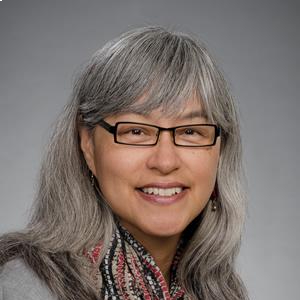Staff Bio
Breadcrumb
Carolyn Martin, MLS, AHIP
Outreach and Education Coordinator, Region 5
Carolyn Martin focuses on organizations who work with underserved populations such as those who live in rural areas, older adults, those with various abilities, immigrants and refugees, and other minorities. The National Library of Medicine offers a variety of resources on health and science education which she highlights to K-12 educators, school nurses and school librarians to prepare students for biomedical careers as well as to be informed health consumers. Carolyn's interests include, health literacy, genomic health literacy, accessibility, and health news. Carolyn received her undergraduate degree from Goshen College and her MLS from Indiana University. She has been a public librarian and a hospital librarian where working with the public and patients led to her current position. Learn more about Carolyn here
Classes I Teach
| Event Title | Summary |
|---|---|
| Cancelled. Empowering Communities Through Digital Health Literacy: The Role of Medical and Community Librarians | This session highlights how medical and community librarians can play a transformative role in empowering individuals and communities to navigate digital health tools effectively. |
| Consumer Health Collection Management On-demand | This 2 credit-hour, on-demand class reviews collection management principles, resources and considerations for health-related collections in public libraries. 4 modules and 1 assignment explore collection management policies, how to find information on the health information needs of your community, how to evaluate and assess a collection, and considerations for selecting health related materials for a public library collection. |
| Consumer Health Information Specialization On-Demand | Discover the basics of providing consumer health information through 8 independent learning modules. Earn up to 8 hours credit towards a Consumer Health Information Specialization. |
| Empathy Lens: Humanizing Images & Education for Reducing Stigma Against People Who Use Drugs | This session will explore how stigma in both language and visuals fuels discrimination and exclusion, while sharing practical strategies for selecting non-stigmatizing, accurate, and inclusive materials for outreach, education, and advocacy. |
| Exploring Complementary and Integrative Health: Information, Resources, and Evaluation | This class will explore the definitions of Complementary and Integrative Health (CIH), encompassing both Eastern and Western medicine perspectives. We will delve into various approaches to CIH, discussing their associated risks and benefits. We will also equip you with strategies to help your users discern trustworthy CIH information and avoid fraudulent claims. |
| NNLM Book Discussion What the Eyes Don't See by Dr. Mona Hanna-Attisha (February 1 - April 30, 2025) | Join us February 1 - April 30, 2025 to discuss the book What the Eyes Don't See by Dr. Mona Hanna-Attisha. |
| NNLM Book Discussion, May 2 - July 31, Doing Harm | You are invited to join us for the first NNLM Book Discussion. From May 1 until July 31, join your fellow librarians and read Doing Harm: The Truth About How Bad Medicine and Lazy Science Leave Women Dismissed, Misdiagnosed, and Sick by Maya Dusenbery! |
| NNLM Book Discussion: Rebel Health | NNLM Book Discussion. Starting November 3 until January 31, 2026. We will read Rebel Health by Susannah Fox. |
| Telehealth 101: What libraries need to know | This class introduces telehealth, why it’s important, and how it enables people to have greater access to quality healthcare. Explore how libraries around the country provide patrons in their communities with access to telehealth services. |
